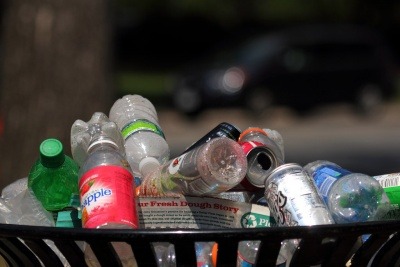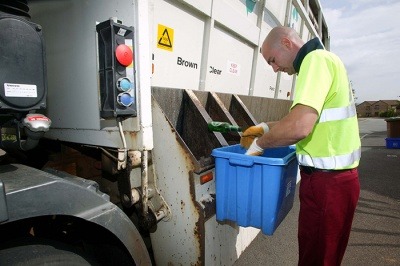Scottish Government unveils deposit return scheme design
Drinks containers made from aluminium, steel, glass and PET plastic will now carry a 20 pence deposit in Scotland as part of the Scottish Government’s new deposit return scheme (DRS).
The details of Scotland’s new DRS were revealed yesterday (8 May) and represent the next step in Scotland’s attempts to deal with the issue of single-use waste. First Minister Nicola Sturgeon originally committed Scotland to introducing a DRS in 2017 following ‘detailed work’ carried out by Zero Waste Scotland on its feasibility.
After a public consultation on how a DRS would work in Scotland, Scottish Environment Secretary Roseanna Cunningham confirmed yesterday that the deposit would be set at 20 pence, with all retail outlets throughout Scotland required to comply with the scheme, while schools and community locations will be able to serve as return points.
A DRS works by charging a small extra fee on top of the cost of a product; this extra fee can then be recouped when the used product is returned directly to a retailer for recycling.
Scottish consumers will be able to return their containers over the counter or by using a reverse vending machine (RVM). RVMs take products, read bar codes, return the deposit to the user and store containers ready for collection. The deposit will be able to be recouped in the form of cash at the till, a token or voucher or digitally.

It is notable that the scheme will accept containers of varying size and material – an ‘all in’ model rather than an ‘on the go’ model, which would only target those items that are most often purchased and thrown away out of the house, for instance in shopping centres. This means that with some containers, consumers will have a choice about whether they return them to a retailer and get their deposit back, or put them in their kerbside recycling bins.
The scheme will be run by an independent company with funding for the system coming from unredeemed deposits, revenue from sales of collected material and a producer fee.
Supporting a circular economy
Announcing the plans yesterday, Cunningham said: “Scotland was the first part of the UK to commit to a DRS as part of our wider efforts to prevent discarded drinks containers from ending up in our streets and seas, and is now the first to outline its design – one that is ambitious in scale and scope, and which gives the people of Scotland a clear and straightforward way to do their bit for the environment.
“There is a global climate emergency and people across Scotland have been calling, rightly, for more ambition to tackle it and safeguard our planet for future generations. I am therefore delighted to confirm that I intend to implement a system covering PET – the most common form of plastic packaging – aluminum and steel cans, and glass, with a deposit refund set at 20p.

Jill Farrell, Chief Operating Officer, Zero Waste Scotland, added: “This will be a game-changer for recycling and the circular economy in Scotland. By giving people an extra incentive to do something good for our environment, and having a consistent approach across Scotland, we are confident it will be easier for all of us to do the right thing. This will improve the volume and quality of recycling and help tackle litter in the process.
“With a huge network of places to return your bottles and cans, it will be just as easy to return a drink as it is to buy one in the first place. I’m proud of Zero Waste Scotland’s role in advising the Scottish Government on this design, which has resulted in a blueprint for a world-class scheme.”
First scheme in the UK
Scotland appears set to be the first UK nation to introduce a DRS, despite moves across the four countries towards similar schemes.
Last year, UK Environment Secretary Michael Gove announced that England would be introducing a DRS, subject to the results of a consultation, with an expected introduction in 2020. The consultation, which closes on 13 May, is being undertaken jointly by the UK and Welsh Governments and the Department of Agriculture, Environment and Rural Affairs (DAERA) in Northern Ireland.
Wales will be using the results of the consultation to inform its decision on whether it will implement a DRS – given Wales’ high recycling rate it remains to be seen whether the Welsh Government will deem a DRS necessary.
While Scottish Ministers did meet with UK, Welsh and Northern Irish representatives last year to discuss the possibility of a UK-wide DRS – the preference of the UK Government – Scotland is now forging ahead on its own.
Mixed response from waste industry
The decision to rule out a UK-wide DRS has been described as “clearly unfortunate” by Stephen Freeland, Policy Adviser at the Scottish Environmental Service Association (SESA), which represents the Scottish waste and resource management industry. Freeland said: “It is clearly unfortunate that the Scottish Government has opted to go it alone, with a single-UK wide scheme now a distant prospect. This is likely to increase scheme costs, reduce efficiencies and increase the likelihood of fraud.”

In a statement released today, the Scottish arm of the Chartered Institution of Wastes Management (CIWM) concurred, stating that a DRS in Scotland should ‘complement’ kerbside recycling collections by ‘focusing on more difficult to recycle materials’. The group expressed concerns that high value materials could end up being diverted away from the kerbside, undermining crucial revenue streams for local authorities – concerns that have long been raised by councils across the UK.
Both CIWM Scotland and SESA also called for more joined up thinking from the Scottish Government, looking at a DRS in the wider context of proposed Extended Producer Responsibility (EPR) reforms, which it is hoped will bring much-needed change to the UK’s management of waste packaging.










